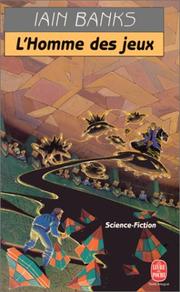Elias a publié une critique de The Player of Games par Iain M. Banks
The Player of Games (Goodreads)
5 étoiles
Avertissement sur le contenu General spoilers
Oh my god do I have thoughts about this book. But first, background about my rating: I try to abide by goodread's usage of the five star rating to avoid my reviews getting skewed toward more stars. So, this five star rating holds a little extra weight this time.
Alright, so. I love the culture. I was introduced through a reading I did for a Philosophy class nearly 3 years ago now, but only got around to reading the series of books now (this is the first culture book I've read). I love the absolute scale of it - it is difficult to get fully acquainted with it, and some parts of this book were confusing to me as a new initiate, but otherwise I think this book was a great introduction. There is so much to be explored, and I'm already a little disappointed that some of the parts I was most interested in from this book are not explored in future books (I skimmed some summaries). However, I am nearly unreasonably excited to learn more about the Minds.
Speaking of the minds, I love how drones are treated in this universe. As fully sentient with their own complex composition and depth of emotion - makes for far more interesting stories. I really enjoyed the twist of Mahwrin Skel being Flere-Imasaho. I caught on around the beginning of the third chapter, but the end reveal was still satisfactory.
The twists in this book were really enjoyable - I feel like its perfectly on brand for a large society to mostly keep its pawn in intersocietal chess in the dark so it was sorta awe inspiring to see just how much they kept in the dark. I really didn't expect for the final game to be played for the Empire of Azad's existence itself - I simply thought Nicosar had gone off the rails because he was a sore loser and could not stand to not win (despite his throne being assured, more or less).
Some additional notes: I really appreciated seeing Gurgeh sorta detach from reality after being shown the state media deciphered by Flere-Imasaho. I love how the way the story was told mirrored Gurgeh's detachment by referring to Gurgeh as a nondescript man that we no longer have a window into the thoughts of, especially. Of course this was, in the end, just Flere-Imasaho not making up what Gurgeh was thinking, but it really drives home that Gurgeh was having a mental breakdown of sorts trying to parse the absolute violence of the culture around him.
I'm just. Enamored. By the scale of the Culture and its society, how Gurgeh became consumed by the game and gave all of his focus to it, the drones, by Special Circumstances... It's all beautiful and fascinating and I'm excited to read the other books.


